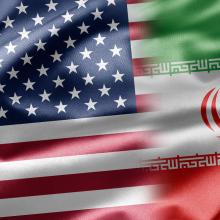negotiations
AT LAST, AFTER more than 30 years of isolation since the Islamic Revolution of 1979 overthrew the U.S.-installed Shah, American and Iranian officials are talking to each other. The late September telephone conversation between President Obama and Iranian President Rouhani was an important first step. If the two sides can reach an agreement on ending the nuclear standoff, it could pave the way for other forms of cooperation that could significantly improve regional and global security.
Because of the historical mistrust between the United States and Iran that goes at least as far back as the 1954 CIA-backed coup that overthrew Iran’s democratically elected prime minister, achieving progress will require diplomatic flexibility on both sides. The core objectives of the international community are to prevent Iran from developing nuclear weapons and to guarantee that its nuclear program is solely for peaceful purposes. This can be accomplished by convincing Tehran to accept binding limits on its nuclear program and by robust monitoring mechanisms to guarantee the absence of military-related activities.
Iran’s objectives are to gain international acceptance of its right to develop nuclear energy, including uranium enrichment, and to obtain relief from crippling sanctions. If Tehran takes steps toward accepting limits and agreeing to enhanced transparency and monitoring, Washington should offer an initial partial suspension of sanctions and pledge to lift additional sanctions as progress proceeds. This would help jump-start the talks and strengthen President Rouhani’s hand in the face of hardliners.
GEORGE MITCHELL, the former U.S. senator who famously brokered peace in Northern Ireland, knows the path to peace is unpredictable. “Until it happens,” he said, “you can’t predict with certainty. ... You can’t take ‘no’ for an answer. ... You just have to keep at it until peace is achieved.”
After five years of stalled Middle East peace talks, Secretary of State John Kerry lured Israeli and Palestinian negotiators back to the peace table in July. Sadly, my desk is littered with articles by naysayers who seem more than willing to “take ‘no’ for an answer” when it comes to peace in the Holy Land.
Naysayers point to the expansion of Jewish settlements and the political power of Israeli hawks, as well as the divisions in Palestinian society that convince them there is “no true partner for peace.” Certainly years of disappointments and failed negotiations offer ample cause for skepticism.
But I agree with Faisal Abbas, who suggests that cynicism is a lazy option we can’t afford. “Negotiations may succeed or fail to achieve peace,” he writes, “but the alternative (not having these negotiations) is guaranteed to fail.”

Our moral strength as a society comes from how we treat vulnerable populations. The rise of programs such as Medicaid and Head Start has allowed the independent living movement among those with disabilities to flourish and groups such as Heritage Christian Services do their life-changing work
But here's the problem: Heritage Christian Services just saw their funding cut by the federal government and they are concerned that worst of the cuts are yet to come.
